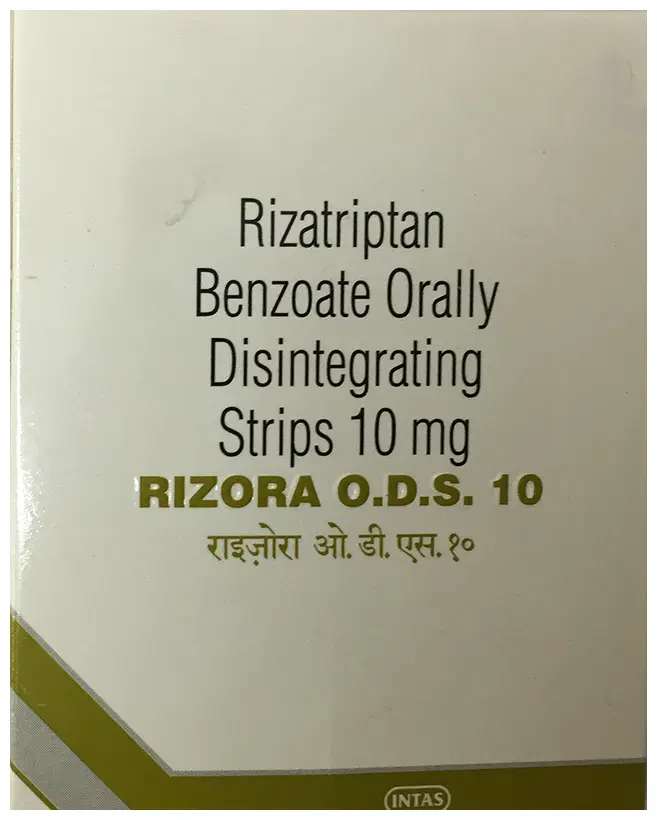Rizatriptan
Rizatriptan is a selective 5-HT1B/1D receptor agonist, which belongs to the class of triptans used for the acute treatment of migraine attacks with or without aura in adults. It is available in the form of tablets and orally disintegrating tablets (ODT).
The primary mechanism of action of rizatriptan is its ability to selectively bind to the 5-HT1B and 5-HT1D receptors found in the cerebral and meningeal blood vessels, as well as in the trigeminal ganglia. This binding results in the constriction of the dilated cerebral blood vessels, which helps to alleviate the pain and other symptoms associated with migraine headaches. Additionally, rizatriptan also inhibits the release of certain neurotransmitters, such as calcitonin gene-related peptide (CGRP) and substance P, which are thought to play a role in the inflammatory process and pain perception during a migraine attack.
Rizatriptan is primarily used for the treatment of moderate to severe migraine headaches, and it is not intended for the prevention of migraines or the treatment of other types of headaches, such as tension headaches or cluster headaches. Rizatriptan should only be used as a part of a comprehensive headache management plan, which may include other medications, lifestyle modifications, and other therapeutic interventions.
Rizatriptan tablets are available in three different strengths: 5 mg, 10 mg, and 20 mg. The recommended starting dose is 10 mg, which can be taken as soon as the migraine attack begins, but no sooner than two hours after the onset of symptoms. If the patient does not experience an adequate response within two hours, a second dose of 10 mg may be taken after at least two hours have passed since the first dose. The maximum total daily dose should not exceed 30 mg within a 24-hour period.
For patients who have difficulty swallowing tablets, rizatriptan is also available in an orally disintegrating tablet formulation. These ODTs dissolve quickly on the tongue, allowing for a more convenient and comfortable administration option for those who have difficulty swallowing.
Rizatriptan is not recommended for use in patients with uncontrolled hypertension, coronary artery disease, or other significant cardiovascular risk factors, as the use of triptans in these populations may increase the risk of cardiovascular events. Additionally, rizatriptan should be used with caution in patients with a history of stroke, transient ischemic attack, or peripheral vascular disease, as these conditions may also be associated with an increased risk of cardiovascular events.

Showing 1–12 of 27 results
Showing 1–12 of 27 results





